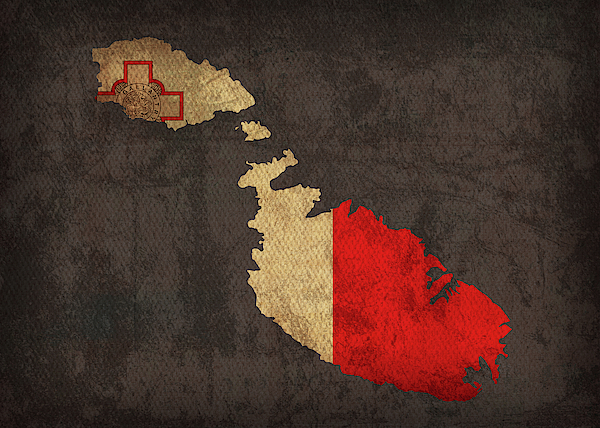I. Introduction
Small countries like Malta face unique challenges in terms of maintaining a stable and sustainable tax system. With limited resources and a small population, tax revenue is crucial to support public services and government operations. Unfortunately, tax avoidance schemes carried out by multinational corporations have become a major obstacle to Malta’s efforts to collect the revenue it needs. This article will explore the impact of tax avoidance on Malta’s economy, compare it to other small countries facing similar challenges such as Cyprus and Luxembourg, and examine efforts by the European Union (EU) and the Maltese government to address the issue.
II. Background Information
Malta operates a progressive tax system with rates ranging from 0% to 35%. The country relies heavily on tax revenue, which accounts for around 70% of its overall revenue. Small countries like Malta use tax revenue to finance the provision of public services, such as healthcare, education, and infrastructure. However, tax revenue collection in Malta is threatened by the practices of multinational corporations that exploit tax loopholes to avoid paying the full amount they owe. Such practices have resulted in significant losses in revenue for Malta, and have been linked to a negative impact on the economy, including a recession. The situation in Malta is not unique, as other small countries like Cyprus and Luxembourg have also been victims of tax avoidance schemes.
III. Cyprus
Cyprus is known for hosting a large number of offshore companies and has been labeled a tax haven. In 2013, a scandal broke involving a leaked list of offshore accounts belonging to wealthy individuals and businesses from around the world. It was discovered that many of these accounts are owned by multinational corporations with subsidiaries in Cyprus. The leaked documents revealed that these corporations use tax avoidance schemes to pay little to no tax in their home country, instead routing profits to offshore subsidiaries.
The amount of tax revenue lost by Malta to Cyprus is difficult to estimate. However, it has been reported that Malta has lost close to 2% of its gross domestic product (GDP) as a result of tax avoidance. Malta’s economy is heavily dependent on foreign investment, with little domestic industry. The impact of such losses could be catastrophic, particularly for small businesses and taxpayers.
IV. Luxembourg
Luxembourg has been accused of offering tax deals and incentives to multinational corporations in exchange for locating their subsidiaries within its borders. This enables these corporations to benefit from a low corporate tax rate, while avoiding paying tax in their home country. The tax avoidance scandal in Luxembourg has been labeled as “LuxLeaks” and involves the revelations of confidential documents that exposed hundreds of companies utilizing these practices.
Malta has lost a significant amount of tax revenue to Luxembourg, with the loss estimated to be around 5% of its GDP. The impact of such losses on Malta’s economy cannot be overstated. In addition to the economic impact, tax avoidance schemes also have social implications, as they contribute to higher income inequality and undermine public trust in the government.
V. EU Efforts to Combat Tax Avoidance
The EU has taken steps to address the issue of tax avoidance through the creation of a tax avoidance blacklist. The blacklist includes countries that have been flagged for engaging in harmful tax practices and puts pressure on such countries to improve their regulatory frameworks. However, critics have argued that the blacklist is insufficient, as it fails to account for the extent of tax avoidance schemes carried out by multinational corporations. Additionally, some countries have criticized the blacklist for being politically motivated.
The EU’s efforts to combat tax avoidance could have significant implications for Malta and other small countries. However, it will take much more than a blacklist to fully address the problem, especially considering the significant role that multinational corporations play in carrying out tax avoidance practices.
VI. Government Response
The Maltese government has taken measures to combat tax avoidance, such as increasing its international tax treaties and agreements. Additionally, Malta has implemented new legislation aimed at penalizing companies that engage in aggressive tax planning. The government has also expressed its commitment to support the EU’s efforts to address tax avoidance.
However, it is important to note that much more needs to be done to ensure that multinational corporations are held accountable for their actions. As a small country, Malta faces significant challenges in addressing this issue alone, and strong international cooperation is needed.
VII. Impact on Malta’s Image
The impact of tax avoidance on Malta’s reputation as a financial center cannot be understated. The perception of Malta as a tax haven could deter potential investment and reduce faith in the country’s financial institutions. By actively pursuing measures to address tax avoidance, Malta can protect its reputation and demonstrate its commitment to ethical business practices.
Comparisons can be drawn with other financial centers such as Switzerland and the Netherlands. These countries have also been accused of facilitating tax avoidance, leading to an erosion in public trust. By pursuing a proactive approach to the issue, Malta can differentiate itself from these countries and solidify its status as a reputable financial center.
VIII. Conclusion
Tax avoidance is a major issue for small countries like Malta, Cyprus, and Luxembourg. While the EU’s efforts to combat tax avoidance are a step in the right direction, much more needs to be done to hold multinational corporations accountable for their actions. The loss of tax revenue can have severe social and economic implications, and strong international cooperation is needed to address the problem. Ultimately, it is up to all stakeholders, including governments, businesses, and individuals, to join forces to combat tax avoidance and promote a fair and sustainable tax system.
FAQs:
Q: Why do multinational corporations engage in tax avoidance?
A: Multinational corporations engage in tax avoidance to reduce their tax burden and increase profits. By exploiting tax loopholes, they can legally avoid paying the full amount of tax they owe, shifting profits to subsidiaries in lower-tax or tax-free jurisdictions.
Q: How does tax avoidance affect small countries like Malta?
A: Tax avoidance results in significant losses in revenue for small countries, which can impact public services and infrastructure projects. Additionally, the negative impact on the economy can lead to increased unemployment and economic hardship.
Q: What can be done to address tax avoidance?
A: Strong international cooperation is needed to effectively address tax avoidance. Governments, businesses, and individuals all have a role to play in ensuring that multinational corporations are held accountable for their actions. Additionally, creating a fair and transparent tax system can reduce the incentives for tax avoidance by ensuring that all entities pay their fair share.










